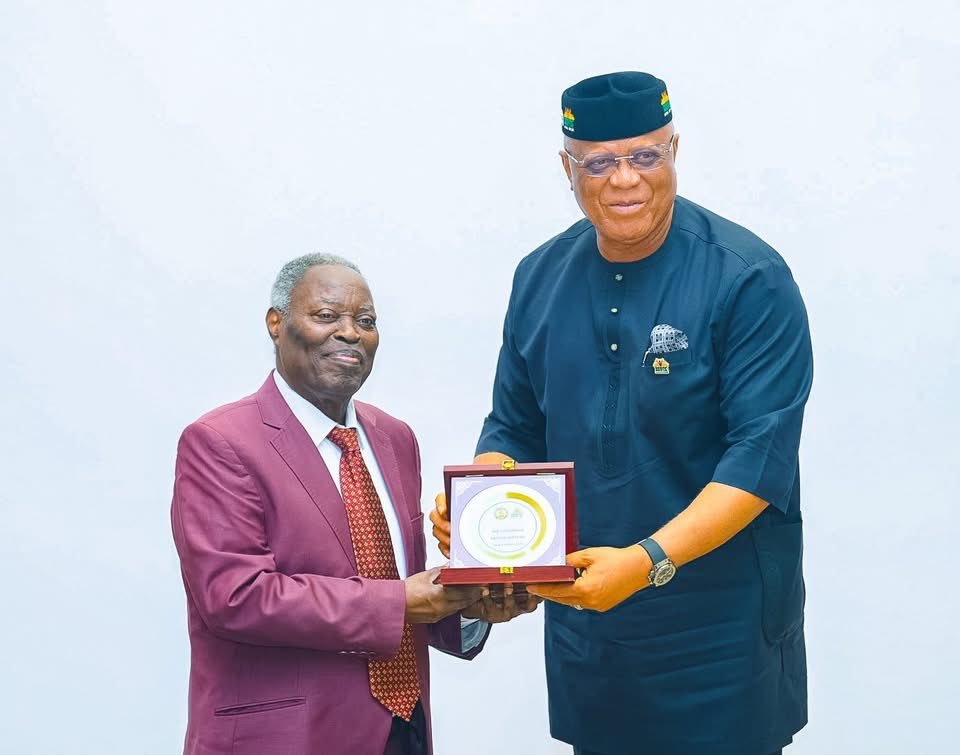FROM CURIOSITY TO CRISIS: WHAT’S KILLING READING HABIT AMONG CHILDREN IN NIGERIA?

For generations, books were portals, opening doors to imagination, discovery, and knowledge. In Nigerian homes and schools, children once flipped pages with curiosity, and libraries were quiet sanctuaries for learning, but today, those scenes are fading.
A CULTURE IN CRISIS
A worrying consensus is emerging: fewer children are reading for pleasure, some are reading deeply, and many are struggling to understand what they do read. The causes are complex, but the consequences are clear— declining academic performance, stunted critical thinking, and a generation growing up without the habits that shape lifelong learners.
“Reading culture is dwindling, disappearing and the libraries are nearly empty and scantily filled with majorly distracted students. Digital devices are at the hub of this distraction” says Deputy Director of ICT at Adeyemi Federal University of Education (AFUED), Dr. Joy Olawuyi, noting that Social media and online entertainment have replaced books.

THE DIGITAL DISTRACTION DILEMMA
Stakeholders blame the omnipresence of digital devices. From smartphones and tablets to endless video content and social media apps, children are immersed in a fast-paced digital world.
The University Don described how students are not reading in between lines any more, because of the distractions from online entertainment and lack of premium on self-earned success. She noted that the viral slogan “Education is a scam” has taken root among some youths, reflecting a dangerous devaluation of academic effort, as success is no longer linked to hard work.
She suggests clear, actionable reforms:
- Teachers must instill reading discipline in classrooms.
- Assignments should include reading tasks with presentations.
- Educators should adapt— using digital tools to push curriculum-aligned content.
- Technology must become a tool for learning, not a substitute.

HOME FRONT: WHERE HABITS BEGIN
The home is where love for reading should take root. But increasingly, parents are part of the problem.
“Children are given phones too early,” says Mrs. Adediwura Duyile, an educationist and secondary school teacher who revealed how children are inquisitive about phone usage, but dislike reading.
“Since they can easily get answers using their phones, they don’t like to read” she said. She further identified the effect of this early exposure to screen-based entertainment, stating that ” it’s what you know that you’re able to defend, if they don’t read they won’t know and it would definitely affect their performance negatively”.
But she believes the cycle can be broken, as she highlighted ways to reverse the trend.“Start introducing books at toddler age and lead by example. Parents must read with their children, limit screen time and support the teachers in limiting the use of phones, so they can carry their books and read.” she suggested.

REWARDING THE RIGHT HEROES
In a society where reality TV stars and influencers dominate public admiration, rewarding academic excellence is no longer as visible— or as celebrated.
Tutor-General (TG) of Ondo Central, Mrs. Adedamilola Owoka said “to support reading culture in our schools and communities, we have to fight against all the distractions on our children, on the students, by rewarding hardwork”
The T.G emphasized on public recognition and incentives to reward academic excellence to reignite interest in reading among students stating that “If BBNaija can reward almost naked girls with millions, then the government and stakeholders can do more for students who read and excel academically.”
She urges policy makers to celebrate academic achievers with the same intensity used to spotlight celebrities.“We can reward the hard work of students that are dedicated to their studies. As you do that, those who are lagging behind would be challenged to put in their best and do more.” she stated.

BUILDING BRAINS, NOT JUST GRADES
To many educators, the value of reading goes beyond passing exams. It builds the children— cognitively, emotionally, and socially.
“Reading stimulates various areas of the brain,” explains Mr. Omolara Idowu, a school proprietor, instructor and literacy advocate. “It builds vocabulary, sharpens critical thinking, and boosts creativity,” he pointed out.
He quotes John C. Maxwell: “Readers are leaders.” and noted how the people inventing technology today are readers. “Innovators have read about history, science, and society. That’s how they think differently,” he said.
He believes reading also develops emotional intelligence. “If you’ve never read about human behavior, how do you relate with others? Reading teaches empathy, context, temperament,” he maintained.

He further outlined teaching strategies parents can adopt to motivate children to read more often.
- Read to children from infancy
- Make books visible in the home— on beds, tables, shelves.
- Use the “play-away” method— turning stories into interactive games.
- Create communal reading spaces and home libraries.
- Dedicate 30 minutes a day to family reading time.

VOICES OF THE FUTURE
Children interviewed shared their love for books— when given the chance. Omoresmi Daniel, an undergraduate revealed why he enjoys reading.
“Reading helps me learn, relax, and expand my worldview” while stating how he has no specific niche, as he reads books on biographies, inspirational works and life-lesson stories.
Similarly, Olawole Faith, another student, revealed how she enjoys reading novels because of its power to open her imagination and improve her communication skills.
Primary school pupils recounted how their parents were instrumental in developing their reading habits, instructing them to adopt reading timetables and visiting libraries to improve reading culture.

WE MUST READ TO LEAD
The road ahead is clear— but it requires all hands on deck.
Parents must model reading habits and limit digital distractions.
Teachers must innovate and integrate reading into daily learning.
Communities must promote access to books and reading programs.
Technology must become an ally— with curriculum-aligned apps, audiobooks, and storytelling tools.
Reading is not a luxury. It’s the foundation of leadership, innovation, and social cohesion.
As the digital tide rises, children don’t need to drown in distractions. They need lifelines— in the form of books, stories, and guidance, because the truth is: we can’t raise future leaders if we lose today’s readers.









